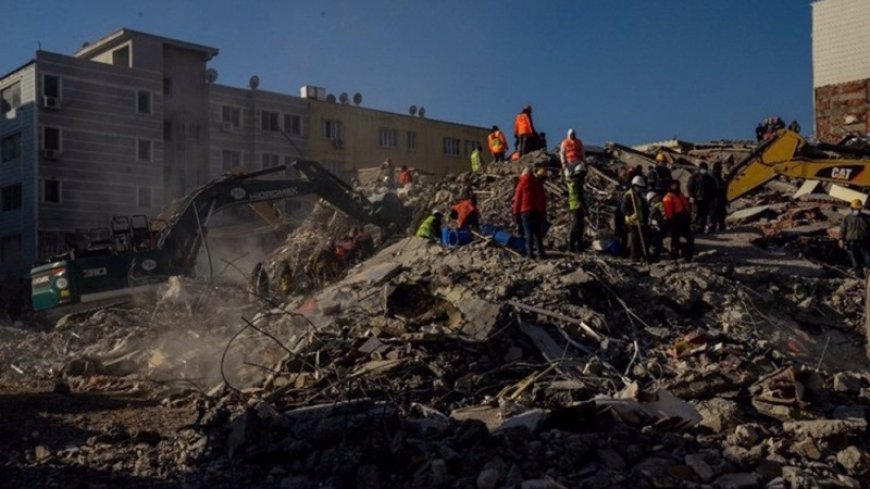The EU only wants to temporarily lift sanctions against Syria weeks after the earthquake

Two weeks after the devastating earthquake in Syria, which was already struggling under tough US and European sanctions, the EU decided to temporarily relax sanctions, ostensibly to speed up the delivery of aid. Aid organizations will not need to seek permission from EU member state governments before sending supplies and services to sanctioned entities in Syria for just the next six months, according to a statement by the European Council.
"The EU waives the requirement for humanitarian organizations to obtain prior authorization from the competent national authorities of EU Member States in order to transfer or provide certain goods and services to listed persons and entities for humanitarian purposes," the statement said.
According to the statement, the measure was taken "given the seriousness of the humanitarian crisis in Syria, which was exacerbated by the earthquake." On February 13, the International Movement for a Just World (JUST) and other local and international NGOs called on the US, UK, Australia, Canada, Switzerland and some US allies in the European Union and Arab countries to lift the unjust and immoral sanctions against Syria to alleviate the immense suffering caused by the severe earthquake.
Earlier in February, Syrian Foreign Minister Faisal Mekdad criticized Western sanctions which he said have exacerbated "the tragedy and catastrophe" of the devastating earthquake that struck parts of Syria and neighboring Turkey on February 6. "The catastrophe of the earthquake that has struck Syria is great, and what has compounded its magnitude is the difficult circumstances the country has endured in the last 12 years in the fight against terrorism and its supporters," Mekdad said.
A report published by Asia Times in February said the US and EU's temporary suspension of sanctions is not enough, as it means they can be reinstated at any time. "The sanctions should be ended once and for all because there was no justification for it in the first instance," says the report. On Feb. 10, the US announced a 180-day exemption from Syrian sanctions for disaster relief, but analysts say the move has no merit.
Delaney Simon, a senior analyst for the US program at the International Crisis Group, said he didn't think this exemption would suddenly open the floodgates and allow unhindered humanitarian access and supplies inside Syria. "There are just too many other access issues," he said.
Syria has been reeling from a foreign-backed militancy since March 2011. While the terrorist group IS has been crushed by the Syrian government, the militant groups continue to rule in some parts of the country under the auspices of Western powers. Numerous reports have pointed to Washington's role in ferrying ISIS terrorists to the war-ravaged country, and even airlifting aid to the group. Also, in 2014, the United States, led by numerous of its allies, invaded Syria under the pretense of fighting the terrorist group IS.
The US government has also imposed sweeping economic sanctions on Syria amid the Arab nation's uphill struggle to rebuild and recover. The restrictive measures have blocked imports of essential goods and restricted the Syrian people's access to medical equipment, food, heating, gas and electricity. The sanctions have effectively cut off Syria from the global economy and left it dependent on a handful of allied states like Russia and Iran.
The United Nations says over 5 million people in Syria have been affected by the earthquake and are in need of shelter, food and medicine. The disaster has multiplied the suffering of Syrians who have endured years of foreign-backed war and Western sanctions that have left millions dead, displaced and impoverished.













































